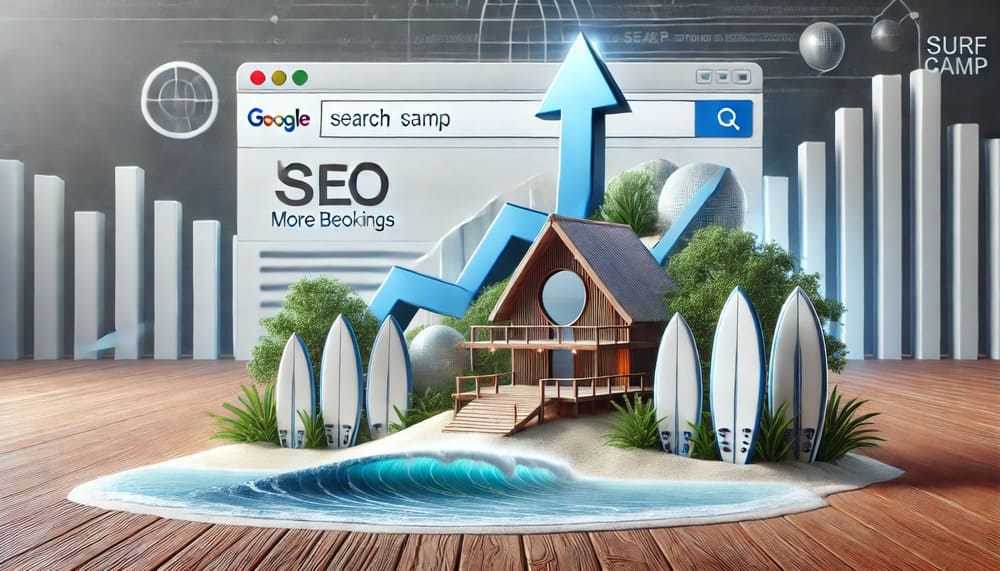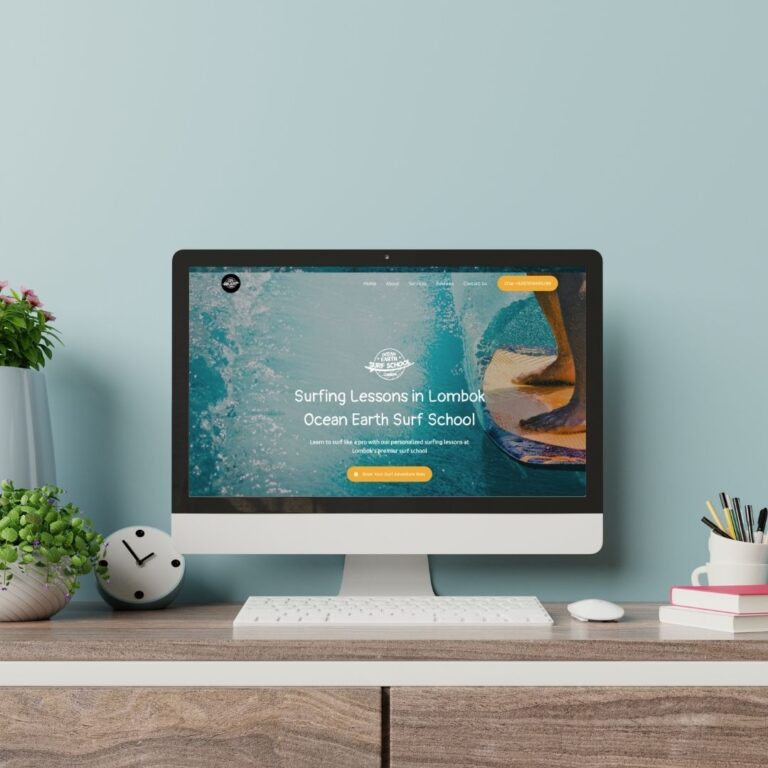In today’s competitive digital landscape, surf camps need to do more than just offer great experiences on the water—they need to be visible online. That’s where search engine optimization (SEO) comes in. By leveraging the power of SEO, surf camps can increase their visibility, attract more customers, and ultimately boost bookings. A solid SEO strategy ensures that your surf camp website ranks higher on search engines like Google, making it easier for potential customers to find you when they search for surf lessons, camps, or surf spots.
SEO is a powerful tool that can drive traffic to your website, but it’s more than just stuffing your content with keywords. To truly benefit from SEO, surf camps must focus on targeted keywords, local SEO for surf spots, and optimizing content to align with search engine algorithms.
Keyword Targeting for Surf Camps
Keyword targeting is the foundation of any SEO strategy. For surf camps, this means identifying and using keywords that potential customers are searching for when looking for surf lessons, camps, or surfing destinations. The goal is to create content that matches the intent of those searches, making it easier for search engines to connect your website with users who are likely to book with you.
To begin, research what keywords are most relevant to your surf camp. These could include terms like “surf camps near me,” “best surf camps for beginners,” or “surf lessons in [location].” Once you have identified these keywords, you can strategically place them throughout your website. Incorporate them in key areas such as page titles, meta descriptions, headers, and throughout the body of your content.
However, it’s important to use keywords naturally. Overstuffing keywords into your content can lead to a negative experience for users and may cause search engines to penalize your site. Instead, focus on creating high-quality, informative content that uses keywords in a way that feels organic. By doing so, you’ll attract more qualified leads to your site, increasing the likelihood that they will book a session at your surf camp.
The Power of Local SEO for Surf Spots
For surf camps, local SEO is especially important. Many customers are tourists or locals looking for surf lessons near specific beaches or coastal areas. Optimizing your website for local searches will help ensure that your surf camp appears when people search for surf-related activities in your area.
Local SEO involves optimizing your website to show up in location-based searches. For example, if your surf camp operates in Bali, you’ll want to target keywords like “surf lessons in Bali” or “Bali surf camps.” Google prioritizes businesses that are relevant to a user’s location, so ensuring your camp shows up in these searches can make a significant difference in your bookings.
To improve your local SEO, start by creating or claiming your Google My Business listing. This ensures that your surf camp shows up in local search results, Google Maps, and the “local pack” that appears at the top of Google search results. Make sure your business information—such as your address, contact details, and hours of operation—is up to date and consistent across all online platforms. Additionally, encourage happy customers to leave reviews on Google, as positive reviews can help improve your visibility in local search results.
Another effective way to boost local SEO is by creating location-specific content. Write blog posts or landing pages that target surf spots in your area. For instance, if your camp operates near several popular surf beaches, you could create guides about those beaches, what to expect, and why your camp is the best choice for surf lessons. This type of content not only helps your site rank higher in local searches but also positions your surf camp as an authority in the area, increasing trust and credibility with potential customers.
Optimizing Content for Search Engines
Creating and optimizing high-quality content is essential for surf camps looking to grow their online presence. Search engines prioritize websites that offer valuable, relevant information, so it’s important to create content that answers the questions your potential customers are asking.
For surf camps, this might include blog posts about surfing techniques, tips for beginners, or guides to the best surf spots. Think about the kind of content that will attract your target audience and answer the questions they have when considering booking a surf camp. By regularly publishing content that uses targeted keywords, you can improve your website’s rankings and visibility over time.
Beyond blog posts, you should also focus on optimizing other areas of your website. This includes improving your website’s speed, making sure it’s mobile-friendly, and ensuring that navigation is easy and intuitive. Search engines reward websites that offer a great user experience, so the more you optimize your site for users, the better it will perform in search rankings.
Another important aspect of content optimization is building backlinks. Backlinks are links from other websites to your own, and they signal to search engines that your site is trustworthy and authoritative. You can build backlinks by collaborating with local businesses, travel blogs, or surf-related websites. For example, if a popular travel blogger writes about your surf camp and links to your website, it can boost your SEO and drive more traffic to your site.
Conclusion
SEO for surf camps is an essential strategy for increasing visibility, attracting more customers, and boosting bookings. By focusing on keyword targeting, optimizing for local SEO, and creating high-quality content, you can improve your surf camp’s search engine rankings and ensure that more potential customers find you online. In an increasingly competitive market, surf camps that invest in SEO are better positioned to grow their business and capture more bookings.







